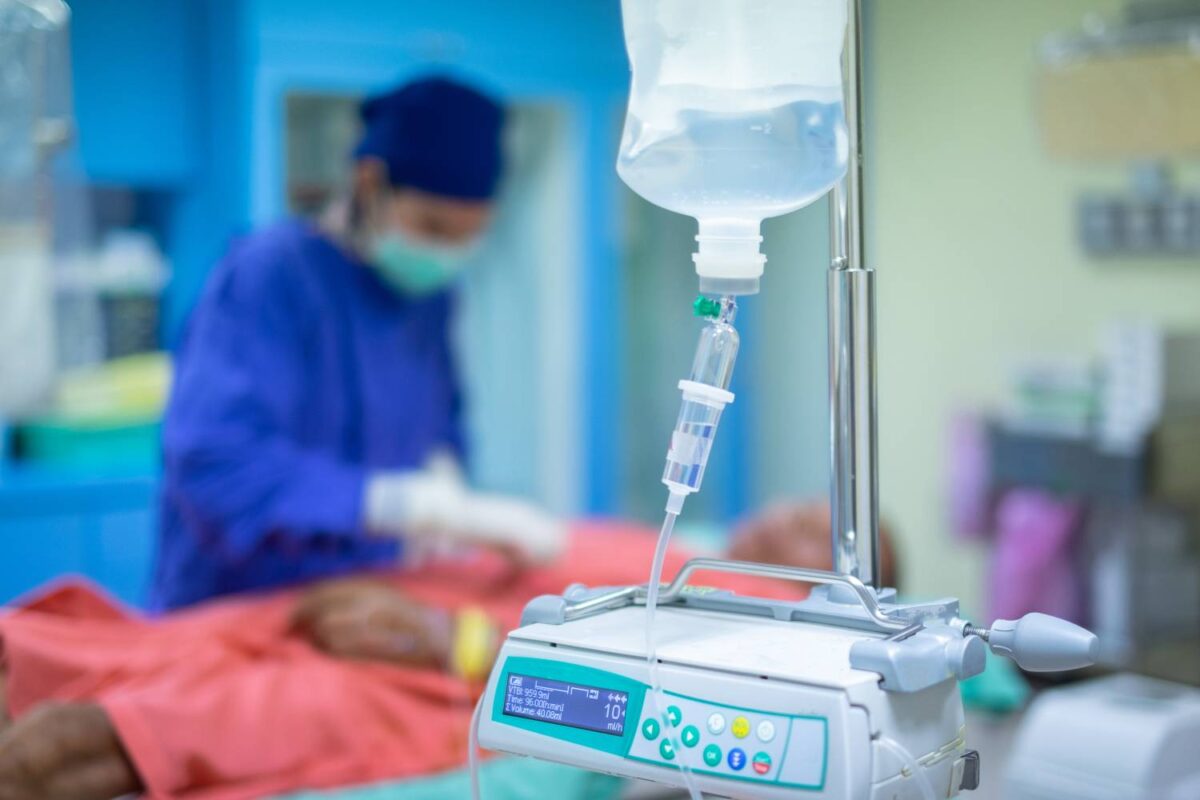Preoperative Administration of Glucocorticoids to Reduce Postoperative Pain, Nausea and Vomiting

Administration of glucocorticoids immediately before surgery has been reported to reduce postoperative pain, nausea, and vomiting without increasing complications.1,2 The most commonly used preoperative glucocorticoid is dexamethasone, which has been shown to play a beneficial role in reducing these symptoms.2 According to the guidelines established by the Society for Ambulatory Anesthesia to manage postoperative nausea and vomiting, a prophylactic dose of 4 mg to 5 mg of dexamethasone should be given to patients at high risk of postoperative pain, nausea, and vomiting regardless of surgical procedure.1
Glucocorticoids regulate humoral mediators caused by trauma and modify the body’s physiological, inflammatory, and immunologic responses to surgery.4 They bind to intracellular glucocorticoid receptors and exert their effects through protein synthesis and gene transcription.4 Glucocorticoids exert their analgesic effect by inhibiting phospholipase enzyme, blocking key pathways in the inflammatory response, reducing tissue bradykinin levels, and releasing neuropeptides from nerve ends.4 It is not fully understood how the antiemetic effects of glucocorticoids occur, but it is hypothesized that they may inhibit prostaglandin synthesis or endogenous opioid release.4 Typically, the biological effect of glucocorticoids occurs 1-2 hours after administration.4 Therefore, it is crucial to administer glucocorticoids 1-2 hours before surgery, as opposed to immediately before anesthesia induction, in order to achieve the desired effects on pain, nausea, and vomiting postoperatively.4
In 2018, researchers in Japan conducted a prospective study involving dexamethasone administration on patients who underwent head and neck surgery (HNS) and evaluated their postoperative outcome.3 The study included 60 patients who underwent HNS at the Miyagi Cancer Center from June 2017 to June 2018.3 Their treatment plan included receiving dexamethasone prior to HNS.3 The data collected was then compared with control patients who underwent HNS from January 2014 to September 2016.3 The QOR40 questionnaire was used to evaluate patient satisfaction about the postoperative recovery.3 The results showed that, compared with the control group, there were significantly lower C-reactive protein levels, higher albumin levels, a lower body temperature, less body weight fluctuation, and fewer incidences of decreased blood pressure in the patients that were given dexamethasone before HNS, suggesting that patients who underwent HNS with dexamethasone administered preoperatively achieved better hemodynamic stability, a lower inflammatory response, and less pain compared to control patients.3
Similarly, administration of glucocorticoids has proved to be valuable for optimization of recovery after orthopedic surgery.5 In 2017, Yue et. al. conducted a systematic review and meta-analysis to the overall benefits and harms of preoperative glucocorticoid administration in total knee and hip arthroplasty (TKA/THA).5 Data was collected from 11 trials involving 774 procedures.5 The results showed that high-dose dexamethasone (> 0.1 mg/kg) rather than low dose prior to TKA and THA was effective in reducing postoperative nausea and vomiting and postoperative pain within 24 hours.5 Additionally, the results found that dexamethasone administration allowed for faster function rehabilitation and improved inflammation control.5
Concerns regarding preoperative glucocorticoid use include the possibility of increased postoperative infection and anastomotic leak, as well as elevated blood glucose.6 However, it is important to note that these adverse effects are primarily observed in patients with prolonged glucocorticoid use, as opposed to those who received only short-term treatment.6 Numerous studies have found that patients who received a preoperative single-dose of dexamethasone were less likely to develop infectious complications after surgery.6,7 Likewise, preoperative glucocorticoids reduced postoperative nausea, vomiting, and pain without increasing complications.6,7
References
- De Oliveira, Gildasio S., Lucas J. Santana Castro-Alves, Shireen Ahmad, Mark C. Kendall, and Robert J. McCarthy. 2013. “Dexamethasone to Prevent Postoperative Nausea and Vomiting”. Anesthesia & Analgesia 116 (1): 58-74. doi:10.1213/ane.0b013e31826f0a0a.
- De Oliveira, Gildàsio S., Marcela D. Almeida, Honorio T. Benzon, and Robert J. McCarthy. 2011. “Perioperative Single Dose Systemic Dexamethasone for Postoperative Pain”. Anesthesiology 115 (3): 575-588. doi:10.1097/aln.0b013e31822a24c2.
- Imai, Takayuki, Koreyuki Kurosawa, Yukinori Asada, Yumiko Momma, Maki Takahashi, Naoko Satake, and Misato Azuma et al. 2020. “Enhanced Recovery After Surgery Program Involving Preoperative Dexamethasone Administration for Head and Neck Surgery with Free Tissue Transfer Reconstruction: Single-Center Prospective Observational Study”. Surgical Oncology 34: 197-205. doi:10.1016/j.suronc.2020.04.025.
- Gul, Gungor, Tayfun Bilgic, and Mehmet Akif Aydin. 2020. “Evaluation of The Effects of Preoperative Dexamethasone Administration on Postoperative Patient Comfort in Laparoscopic Cholecystectomy”. Cureus. doi:10.7759/cureus.7968.
- Yue, Chen, Rong Wei, and Youwen Liu. 2017. “Perioperative Systemic Steroid for Rapid Recovery in Total Knee and Hip Arthroplasty: A Systematic Review and Meta-Analysis of Randomized Trials”. Journal of Orthopaedic Surgery and Research 12 (1). doi:10.1186/s13018-017-0601-4.
- Jensen, Kristian K., Tina L. Brøndum, Bonna Leerhøy, Bo Belhage, Margaret Hensler, Regnar B. Arnesen, Henrik Kehlet, and Lars N. Jørgensen. 2020. “Preoperative, Single, High-Dose Glucocorticoid Administration in Abdominal Wall Reconstruction: A Randomized, Double-Blinded Clinical Trial”. Surgery 167 (4): 757-764. doi:10.1016/j.surg.2019.12.007.
- Zhang, Yun-Xiao, Dong-Liang Mu, Ke-Min Jin, Xue-Ying Li, and Dong-Xin Wang. 2020. “Perioperative Glucocorticoids Are Associated with Improved Long-Term Survival After Pancreatic Cancer Surgery: A Retrospective Cohort Study”. doi:10.21203/rs.3.rs-20131/v1.
